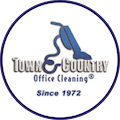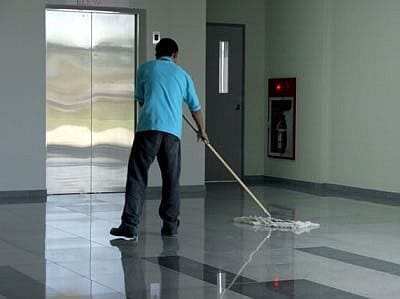
Cultivating effective and engaged employees is both necessary and expensive. The time janitorial tasks take away from normal job duties may cause work to be neglected and deadlines to be missed. Asking office employees to take on janitorial tasks is likely to inspire a healthy level of grumbling at best, but may even push a good worker to seek employment elsewhere. Forced to clean the office, employees may feel devalued, become disengaged, or lose motivation.
Good office employees are not necessarily effective office cleaners. In the hands of an amateur, janitorial tasks will take more time than necessary and may be completed poorly, resulting in an unsightly office environment. Floors or furniture surfaces may become damaged and require repair or replacement, racking up additional (and unexpected) costs. The employer will have to cover the cost of cleaning supplies, which may be wasted or used inefficiently.
Workers compensation claims are another serious consideration. Cleaning company employees are exposed to a variety of potentially dangerous situations, including wet (and slippery) floors, unfamiliar and potentially dangerous cleaning chemicals, and specialty equipment/tools. The typical office employee is not trained in these areas and may have an accident or be exposed to noxious substances. Professional janitorial services train their employees to use chemicals and equipment properly, and carry the necessary insurance to cover potential accidents. A workers comp claim for an office employee who was engaging in non-work related activities could result in increased premiums or the inability to purchase coverage in the future. In extreme cases, an injured employee could sue as the result of a cleaning-related injury.
This is not to say that employees shouldn’t clean up after themselves and maintain a clean workstation. A clean desk policy has been proven to improve employee productivity and morale, and nobody else wants to deal with the week-old Chinese leftovers someone left in the office fridge. There is a big difference however between cleaning up after oneself and performing routine janitorial tasks.
Granted, in a lean organization, the last line of everyone’s job description is “whatever it takes to make the company successful.” Asking your valuable employees to take on janitorial tasks however may be a waste of human resources. Allow your employees to do what they’re best at, and engage an expert to clean up. You’ll likely find that both jobs get accomplished more effectively, and your company will save money in the long term.


